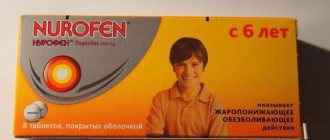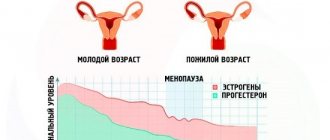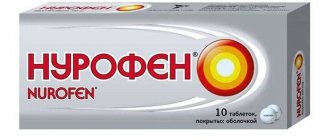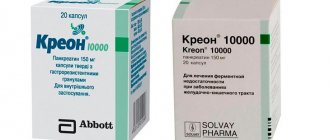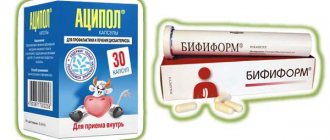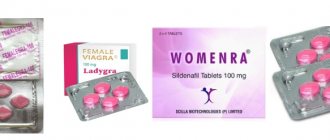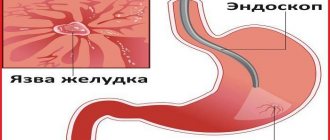Nurofen Express
The risk of side effects can be minimized if the drug is taken in a short course, at the minimum effective dose required to eliminate symptoms.
Side effects are predominantly dose-dependent.
The following adverse reactions were observed with short-term use of ibuprofen in doses not exceeding 1200 mg/day (6 capsules). When treating chronic conditions and with long-term use, other adverse reactions may occur.
The incidence of adverse reactions was assessed based on the following criteria: very often (≥1/10), often (from ≥1/100 to <1/10), infrequently (from ≥1/1000 to <1/100), rarely ( from ≥1/10,000 to <1/1000), very rare (<1/10,000), frequency unknown (no data available to estimate frequency).
From the blood and lymphatic system: very rarely - hematopoietic disorders (anemia, leukopenia, aplastic anemia, hemolytic anemia, thrombocytopenia, pancytopenia, agranulocytosis). The first symptoms of such disorders are fever, sore throat, superficial oral ulcers, flu-like symptoms, severe weakness, nosebleeds and subcutaneous hemorrhages, bleeding and bruising of unknown etiology.
From the immune system: infrequently - hypersensitivity reactions - nonspecific allergic reactions and anaphylactic reactions, reactions from the respiratory tract (bronchial asthma, including its exacerbation, bronchospasm, shortness of breath, dyspnea), allergic rhinitis, eosinophilia; very rarely - severe hypersensitivity reactions, incl. swelling of the face, tongue and larynx, shortness of breath, tachycardia, arterial hypotension (anaphylaxis, Quincke's edema or severe anaphylactic shock).
From the digestive system: infrequently - abdominal pain, nausea, dyspepsia (including heartburn, bloating); rarely - diarrhea, flatulence, constipation, vomiting; very rarely - peptic ulcer, perforation or gastrointestinal bleeding, melena, hematemesis, in some cases fatal, especially in elderly patients, ulcerative stomatitis, gastritis; frequency unknown - exacerbation of colitis and Crohn's disease.
From the liver and biliary tract: very rarely - liver dysfunction (especially with long-term use), increased activity of liver transaminases, hepatitis and jaundice.
From the urinary system: very rarely - acute renal failure (compensated and decompensated), especially with long-term use, in combination with an increase in the concentration of urea in the blood plasma and the appearance of edema, hematuria and proteinuria, nephritic syndrome, nephrotic syndrome, papillary necrosis, interstitial nephritis, cystitis.
From the nervous system: infrequently - headache; very rarely - aseptic meningitis.
From the cardiovascular system: frequency unknown - heart failure, peripheral edema, with long-term use there is an increased risk of thrombotic complications (for example, myocardial infarction), increased blood pressure.
From the respiratory system: frequency unknown - bronchial asthma, bronchospasm, shortness of breath.
From the skin and subcutaneous tissues: infrequently - itching, urticaria, purpura, exfoliative and bullous dermatoses, incl. toxic epidermal necrolysis (Lyell's syndrome), Stevens-Johnson syndrome, erythema multiforme.
Other: very rarely - swelling, incl. peripheral.
Laboratory values: hematocrit or hemoglobin (may decrease); bleeding time (may increase); plasma glucose concentration (may decrease); CC (may decrease); serum creatinine concentration (may increase); liver transaminase activity (may increase).
If side effects occur, you should stop taking the drug and consult a doctor.
Release form
The medicine is available in the form of coated tablets, they are packaged in blister packs, which can contain 6, 10, 12, 14 or 24 tablets.
Also available in capsules with a hard gelatin shell. The red translucent capsules have the inscription “NUROFEN” in white, inside the capsules there is a pink or translucent liquid.
Nurofen Express Neo is produced in round, white tablets. On one side of the tablet there is a black overprint “N”.
pharmachologic effect
NSAIDs. It has a rapid, targeted effect against pain (analgesic), antipyretic (from elevated temperature) and anti-inflammatory effect.
The mechanism of action of ibuprofen, a derivative of propionic acid, is due to inhibition of the synthesis of prostaglandins - mediators of pain, inflammation and hyperthermic reaction. Indiscriminately blocks COX-1 and COX-2, as a result of which it inhibits the synthesis of prostaglandins. In addition, ibuprofen reversibly inhibits platelet aggregation. The analgesic effect of Nurofen lasts up to 8 hours.
Pharmacokinetics
Suction and distribution
Absorption is high, quickly and almost completely absorbed from the gastrointestinal tract. After taking Nurofen on an empty stomach, the Cmax of ibuprofen in the blood plasma is reached after 45 minutes. Taking the medicine with food can increase the time to reach Cmax by up to 1-2 hours.
Binding to blood plasma proteins is 90%. Slowly penetrates into the joint cavity, lingers in the synovial fluid, creating higher concentrations in it than in the blood plasma. Lower concentrations of ibuprofen are found in cerebrospinal fluid compared to blood plasma.
In limited studies, nurofen has been found in breast milk at very low concentrations.
Metabolism and excretion
After absorption, about 60% of the pharmacologically inactive R-form is slowly transformed into the active S-form. Metabolized in the liver. It is excreted by the kidneys (unchanged - no more than 1%) and, to a lesser extent, with bile. T1/2 – 2 hours.
Interaction
There is an interaction with Nurofen Express when taking the following drugs simultaneously:
- when taking inducers of microsomal oxidation, there is an increase in the production of hydroxylated active metabolites , and, as a result, the likelihood of severe hepatotoxic reactions increases;
- when taking microsomal oxidation inhibitors, the likelihood of hepatotoxicity decreases;
- when taking antihypertensive drugs, their effect decreases, and the diuretic and natriuretic activity of hydrochlorothiazide and furosemide ;
- when taking uricosuric drugs, their effectiveness decreases;
- when treated with indirect anticoagulants , fibrinolytics , antiplatelet agents , their effect increases, as a result, there is an increase in the risk of developing hemorrhagic complications;
- when taking estrogens , colchicine , MCS and GCS , ethanol an ulcerogenic effect is noted;
- when treated with oral hypoglycemic drugs and insulin , the effectiveness of these drugs increases;
- when taking cholestyramine and antacids , the absorption of ibuprofen decreases;
- when taking lithium , Digoxin , Methotrexate the concentration of these drugs increases;
- when taking caffeine, the analgesic effect increases;
- when taking ASA , the antiplatelet and anti-inflammatory effect of such drugs is reduced;
- when treated with anticoagulants and thrombolytic drugs, the risk of bleeding increases;
- when treated with Cefoperazone , Cefamandole , Valproic acid , Plicamycin , Cefotetan , the frequency of hypoprothrombinemia increases;
- when treated with myelotoxic drugs, manifestations of hematotoxicity increase;
- when taking gold preparations and Cyclosporine, the effect of ibuprofen on the process of Pg synthesis in the kidneys increases, and as a result, nephrotoxicity increases;
- when taking Cyclosporine, its plasma concentration increases and the risk of hepatotoxicity increases;
- When taking medications that block tubular secretion , the plasma concentration of ibuprofen increases.
special instructions
It is necessary to carefully monitor peripheral blood counts, as well as the condition of the liver and kidneys during treatment with the drug.
If the patient has signs of gastropathy, it is necessary to conduct a series of studies prescribed by the doctor.
If it is necessary to determine 17-ketosteroids, Nurofen Express should be discontinued 48 hours before the upcoming study.
While taking the medication, you should not drive or engage in other activities that require quick reactions.
To reduce the risk of developing negative manifestations in the functions of the digestive system, you need to use a minimum dose of medication for the shortest possible period of time.
Overdose
When taking too large doses of Nurofen Express, the patient may experience drowsiness , lethargy, gastrointestinal dysfunction, headache, depression, acute manifestations of liver and kidney failure, metabolic acidosis, bleeding, tachycardia , bradycardia, etc.
If you take an excessive dose of Nurofen Express, you should immediately rinse your stomach, then drink activated carbon , perform forced diuresis and ensure alkaline drinking. If seizures occur, the patient should be given anticonvulsant medications.
Indications for use
Nurofen Express is prescribed to patients in the following cases:
- for degenerative inflammatory diseases of the musculoskeletal system ( arthritis , osteochondrosis , neuralgic amyotrophy, gouty arthritis, ankylosing spondylitis (ankylosing spondylitis));
- for pain syndromes of different origins: (pain that occurs in patients with arthralgia, myalgia, arthritis, ossalgia, radiculitis, neuralgia , bursitis , as well as migraine , headache , toothache , etc.);
- pain due to cancer;
- pain in women suffering from menstrual syndrome;
- pain syndrome after injuries and operations, in which an inflammatory process is noted;
- inflammatory processes in the pelvis;
- childbirth (as a tocolytic and analgesic drug);
- fever due to colds and infectious diseases.
Contraindications
Nurofen Express should not be used for the following body conditions and diseases:
- hypersensitivity to the components of the drug;
- erosions and ulcers of the digestive tract;
- a combination of bronchial asthma (complete or incomplete), recurrent nasal and paranasal sinus polyposis with intolerance to ASA or other NSAIDs;
- disturbances in the process of blood ;
- bleeding from the gastrointestinal tract in active form;
- severe renal failure
- liver diseases that progress, active liver diseases;
- period after bypass surgery;
- hyperkalemia confirmed;
- intestinal inflammation;
- third trimester of pregnancy ;
- child's age up to 12 years.
Dosage regimen
Nurofen tablets and capsules are taken orally without chewing and washed down with water. Patients with hypersensitivity of the stomach are recommended to take the drug with meals. Nurofen is intended for short-term use only (up to 2-3 days).
- Adults and children over 12 years of age are prescribed 1 tablet. or caps. (200 mg) up to 3-4 times/day. To achieve a faster therapeutic effect in adults, the dose can be increased to 2 tablets. or caps. (400 mg) up to 3 times/day.
- Children aged 6 to 12 years are prescribed 1 tablet. or capsule (200 mg) up to 3-4 times/day; Nurofen can only be prescribed to children weighing more than 20 kg.
The interval between taking tablets should be at least 6 hours. The maximum daily dose for adults is 1200 mg (6 tablets of 200 mg each). The maximum daily dose for children aged 6 to 18 years is 800 mg (4 tablets of 200 mg each).
Nurofen for children – suspension for oral administration. It is advisable to take the drug with food. The maximum daily dose of Nurofen for children should not exceed 30 mg/kg body weight with intervals between doses of the drug of 6-8 hours. The duration of treatment is no more than 3 days.
- Children aged 3-6 months. (body weight 5-7.5 kg) 50 mg (2.5 ml suspension) 2-3 times a day maximum (preferably 50 mg 2 times a day, that is, no more than 100 mg of ibuprofen per day)
- At 6-12 months. (with a weight of 7.7-9 kg) maximum dose - 50 mg (2.5 ml) 3-4 times / day
- Children aged 1-3 years (10-16 kg) – 100 mg (5 ml) 3 times a day
- 4-6 years (17-20 kg) – 150 mg (7.5 ml) 3 times a day
- 7-9 years (21-30 kg) – 200 mg (10 ml) 3 times a day
- Children 10-12 years old (31-40 kg) – 300 mg (15 ml) 3 times a day maximum
Nurofen for children - rectal suppositories.
- Children aged 3-9 months (body weight 6-8 kg) are prescribed 1 supp. (60 mg) up to 3 times/day, but not more than 180 mg/day.
- Children aged 9 months to 2 years (body weight 8-12 kg) are prescribed 1 supp. (60 mg) up to 4 times/day, no more than 240 mg/day.
- For post-immunization fever, children under 1 year of age are prescribed 1 supp. (60 mg); if necessary, after 6 hours you can enter 1 more supp. (60 mg). Do not use more than 2 supp. (120 mg) over 24 hours
Nurofen Express – gel for external use. The drug is intended for external use. The gel is prescribed to adults and children over 14 years of age. When using the tube for the first time, you must open the cap and make sure that the protective foil on the neck of the tube is not damaged. It is necessary to open the foil by pressing on it with the outside of the lid. Squeeze 4-10 cm of the drug from the tube onto your hand (equivalent to approximately 50-125 mg of ibuprofen) and gently rub the gel into the skin until completely absorbed. Immediately after use, wash your hands.
The gel should be reapplied no earlier than after 4 hours. Do not use the drug more than 4 times a day. The maximum daily dose is 500 mg. Do not exceed the indicated dose. If symptoms persist or worsen within 2 weeks of using the gel, you should stop treatment and consult a doctor.
